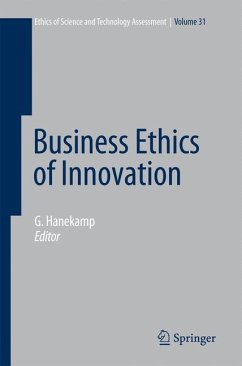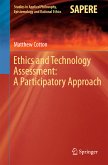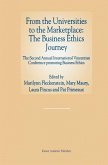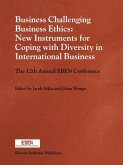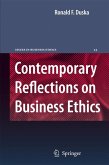Innovations oftentimes raise novel questions about the role of the state or the structure of society. Business ethics needs to provide a framework for balancing the different perspectives, values, and interests at stake. This balance must be achieved at the level of the firm in order to facilitate adequate long term decisions, but it should also be sought at higher, including regulatory, levels. Achieving this balance will require an ethical framework for entrepreneurial action.
The particular disciplines engaged in generating innovations as well as all relevant fields of applied ethics should be involved in the balancing process. Business Ethics of Innovation is thus necessarily an interdisciplinary endeavour.
This volume assesses general questions of how business ethics can help to structure innovations and specifically discusses pharmaceutical innovations as well as innovations in the IT sector.
Dieser Download kann aus rechtlichen Gründen nur mit Rechnungsadresse in A, B, BG, CY, CZ, D, DK, EW, E, FIN, F, GR, HR, H, IRL, I, LT, L, LR, M, NL, PL, P, R, S, SLO, SK ausgeliefert werden.
"... Die Aufgabe eines ethisch reflektierten Innovationsmanagements ist es dabei, die unternehmerischen und gesellschaftlichen Perspektiven miteinander zu vereinen. Der von Gerd Hanekamp herausgegebene Forschungsband versammelt aktuelle fachlich kompetente Beiträge zum Einfluss der Unternehmensethik auf den Innovationsprozess, speziell im Pharma- und IT-Bereich." (in: Innovationsmanager, 2008, Issue 1, S. 90)

